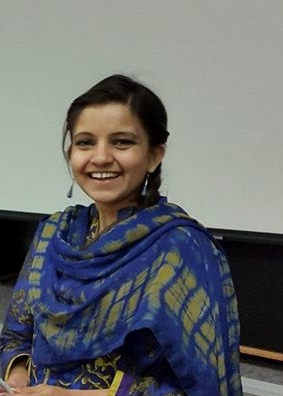
"Seeing the difference in the way local media are treated in the United States was quite a revelation to most of the 20 Pakistani journalists who had been chosen to come on the program," said Midhat Ali Zaidi, a 2014 participant in ICFJ's U.S.-Pakistan Professional Partnership in Journalism program.
In all respects, 2013 had been a very exciting year for me, a journalist struggling to find her place in the robust Pakistani media. I had moved to the capital city to work for the state broadcaster, developed a whole line of current affairs programming with my team at PTV World and covered the nation’s first historic democratic transition, right from the hub of where it all happened, in Islamabad.
The final call came a little too late, as I was nearing the end of my contract with PTV and its renewal was surrounded by uncertainty. After a delay, however, the plan did materialize and, in May of 2014, I landed in Washington, D.C., the bustling capital of the United States. There, I got a chance to interact with the American political scientist and Pakistan, India and South Asia security expert Stephen P. Cohen as well as journalists like Henry Schuster, who produces CBS’s 60 Minutes, one of the longest-running and most-popular news shows on television.
In our interactions with journalists in Washington, D.C., and from our orientation sessions in the first three days of the five-week program, we were briefed about how local media have a strong standing in the United States.
In Pakistan, the most successful media outlets operate nationally, while local and regional television gets a very small audience. Seeing the difference in the way local media are treated in the United States was quite a revelation to most of the 20 Pakistani journalists who had been chosen to come on the program.
To further experience this phenomenon, all 20 of the Pakistani journalists were sent off to different states across the country, to taste the different flavors of American media firsthand.
I have been sent to the beautiful city of Denver, Colorado, where I work with Feature Story News’ Bureau Chief Mary MacCarthy, on the premises of Rocky Mountain PBS. That is where my adventure truly began, including a search for mangoes, a meeting with Denver journalists and a trip to the movies. Watch ICFJ.org for my next blog!